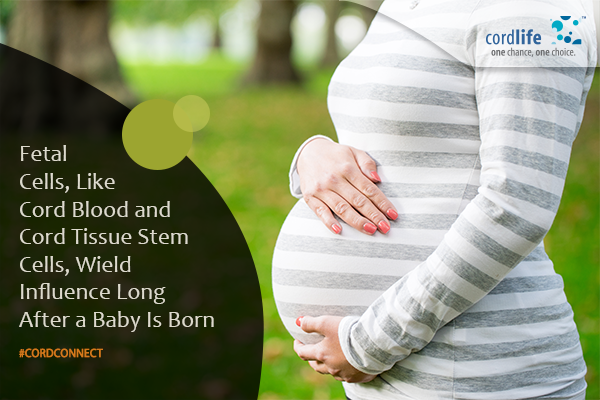Table of Contents
More and more parents are now considering cord blood banking for the simple reason that it has the potential to treat many diseases and conditions even after decades of birth. And not only the child, one cord blood unit can secure entire family’s future and how! We all know that the umbilical cord ties a mother with her child during birth. However, new studies and researches have shown that fetal cells travel through the placenta and often rest in various body parts of the mother.
Arizona State University’s Department of Psychology researcher, Amy Boddy said, “Fetal cells can act as stem cells and develop into epithelial cells, specialized heart cells, liver cells and so forth…they are very dynamic and play a huge role in the maternal body.”
The presence of the cells of the fetus in mother’s tissue is known as fetal microchimerism. Microchimerism, the phrase originated from the Greek mythological term, chimeras that mean creatures created from various parts of different animals. So as the original phrase suggests, microchimerism means the process in which women get cells from different contributors, such as their parents, siblings, and children. These cells have the potential to benefit the health of the mother or undermine her condition after years of birth.
Fetal cells that a mother acquires during birth can remain in the maternal tissue after decades of birth. Sometimes, these cells benefit the mother by protecting her from diseases like rheumatoid arthritis and cancer. However, in some cases, it’s also seen that these cells cause harmful effects in the mother. But no matter what the effects are, it’s clear that the fetal cells have a long-lasting impact on women.
It’s worth a mention that fetal cells play an important role in a specific organ, female breasts. Apart from the fact that fetal cells actively participate in lactation after birth, it’s also seen that poor lactation might be a result of the lower count of the fetal cells in breasts. In case of breast cancer as well, studies suggest that fetal cells largely influence the condition. It’s seen that the women with breast cancer carry fewer fetal cells in their breast tissue. However, there are some researches as well that would suggest that the fetal cells might increase the chance of breast cancer immediately after pregnancy.
Apart from that, fetal cells have a wide impact on the emotional and physical state of a mother. It may range from depression to morning sickness. This is the reason that these fetal cells could be used in therapies in the future to address issues like poor lactation, wounds, tumor and various psychological disorders during pregnancy in women. Athena Aktipis, a fellow ASU researcher said, “If future research bears out the predictions of this framework, it could transform the way we approach, treat and prevent a variety of diseases that affect women, especially new mothers.”
Stem cells that have the ability to cure many diseases can regenerate new cells. Fetal cells, like stem cells, have the potential to protect maternal tissues from many diseases and conditions. Both of them leave a long-lasting impact after a baby is born. No wonder, more and more researches are now focusing on fetal cells.
